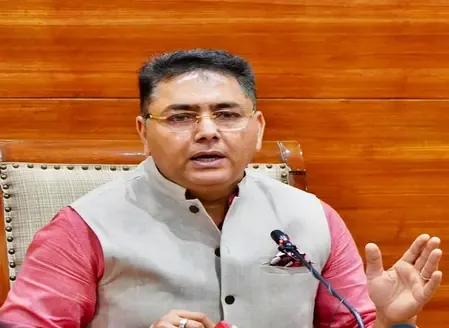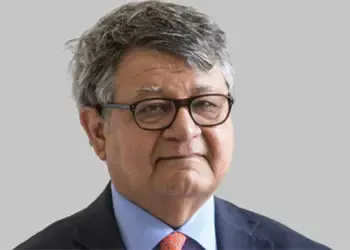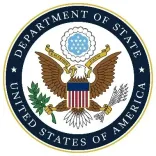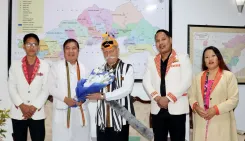India’s Human-Centric Tech and AI Strategy Resonates with PM Modi’s Vision: Minister

Synopsis
Key Takeaways
- India's human-centric approach to AI.
- Commitment to ethical adoption of technology.
- Importance of workforce upskilling.
- Focus on agriculture, healthcare, and education.
- Collaborative efforts on climate action and green jobs.
New Delhi, April 26 (NationPress) India’s human-centric approach to technological evolution, particularly in the realm of AI, aligns seamlessly with Prime Minister Narendra Modi’s vision of ‘Technology for Empowerment, Not Exclusion’, stated Union Minister of State for Labour and Employment, Shobha Karandlaje.
Karandlaje, who represented India at the 11th BRICS Labour and Employment Ministers’ Meeting hosted under Brazil’s Presidency in Brasília, emphasized India’s National Strategy for AI, which focuses on ethical implementation, workforce reskilling, and applications across sectors such as agriculture, healthcare, and education.
A declaration was passed during the meeting urging BRICS nations to foster inclusive AI policies that strike a balance between innovation and worker protection; promote social dialogue to facilitate fair climate transitions, and enhance South-South collaboration on labour governance, digital inclusion, and the creation of green jobs.
The meeting concluded with the endorsement of a forward-looking declaration centering on two critical themes: “Artificial Intelligence (AI) and the Future of Work” and “The Impacts of Climate Change on the World of Work and a Just Transition”, according to a statement from the Ministry of Labour and Employment.
Karandlaje remarked that “Initiatives such as ‘FutureSkills’ and the ‘Namo Drone Didi’ programme are prime examples of India’s dedication to establishing tech-enabled livelihoods, especially targeting rural women and youth.
The National Career Service (NCS) platform, driven by AI, was highlighted as a model for addressing skill gaps and linking millions to job opportunities.
On the topic of climate action, India underscored its just transition framework, ensuring that green growth leads to equitable job creation.
The Sector Skill Council for Green Jobs (SSCGJ) and Mission LiFE (Lifestyle for Environment) were identified as transformative initiatives propelling skills development and sustainable practices during the meeting.
India’s success in reducing GHG emissions from 2020 to 2019 and its commitment to achieving net-zero emissions by 2070 underscored its climate leadership. Collaborative efforts with the International Labour Organisation (ILO) to uphold workers’ rights throughout this transition were also acknowledged.
India’s contributions were praised for integrating advanced technological progress with inclusive social welfare, echoing PM Modi’s mantra of “Sabka Saath, Sabka Vikas”.










